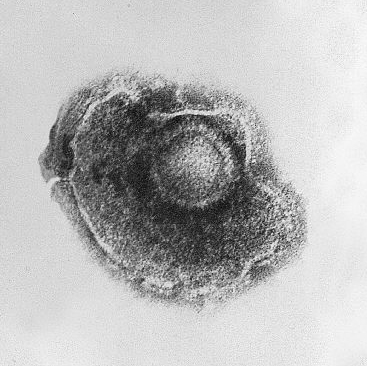Cause and effect
If the varicella zoster virus sounds familiar, that’s because it’s also the culprit behind chickenpox. Once recovered from, the chickenpox virus enters a dormant state in the body that can remain a nonissue indefinitely. The virus takes up residence in the nerve roots and hopefully never becomes activated. However, when the immune system is sufficiently weakened the varicella zoster virus can be reactivated. When it does become reactivated it is referred to as Herpes zoster and is normally limited to the nerve which was lying dormant. This rash often follows nerve distribution patterns, medically known as dermatomes.
Once active, the newly revived virus is no longer capable of inducing a secondary round of chickenpox. In this case only shingles can occur as a symptom this event, and anyone who has once had chickenpox will be immune when in the proximity of shingles.
Symptoms
The shingles rash is identifiable by itching and pain in a concentrated area on one area of the body, (dermatome) but the condition actually progresses through phases of growth as it matures. What starts as sensitivity to light and migraines will develop into a tingling sensation and eventually if left untreated will lead to a rash and eventually blisters. These blisters are very painful and are slow to heal and threaten scarring, which means its wise to consult a physician before the problem escalates. Shingles is normally not a dangerous condition unless it is active near the ear or eyes as it can cause vision problems and in some rare cases, blindness.
Others experience shingles as the misinterpretation of flu symptoms absent the fever itself. Because the visibility of a rash is not always tied to shingles, we advise being mindful of all symptoms and reporting any weakness, dizziness, migraine or pain to your doctor.
Post Herpatic Neuralgia (PHN) is a common condition which remains after the virus is no longer active. Patients often describe PHN as pain that resembles burning or stabbing. This sensation is made worse depending on the nerve in which the virus became active, such as the face. It often follows no pattern, and thus the pain can come on at any point and in varying degrees, which is why it can have such a detrimental effect on quality of life. Be mindful of these symptoms and seek treatment for them right away – PHN has the potential to be worse than the shingles infection itself.
The Cornerstone approach
Shingles treatment:
At the end of the day, catching shingles early is key to positive outcomes when it comes to a shingles infection. In addition to antiviral presciptions from your medical doctor, we often add natural anti-virals such as vitamin A, lysine, and oral vitamin C. Depending on the location of the outbreak, we’ll use vitamin B12 injections to the nerve root where the virus has been dormant. Vitamin B12 protects the sheathes which cover our nerves, like insulation around a wire. Nutritional recommendations will also include avoiding foods high in iron such as red meat, as well as sugar and alcohol due to their impact on the immune system.
Post Herpatic Neuralgia (PHN) treatment:
In many cases patients don’t visit their doctor until they’re suffering from PHN. Treatment involves vitamin C administered intravenously to address the lowered levels often found in patients suffering from PHN. Vitamin B12 injections are also helpful in this case, as is acupuncture and a diet adequate in healthy fats, which support nerve health.
For more information, feel free to contact us directly via our website, or call us here.






